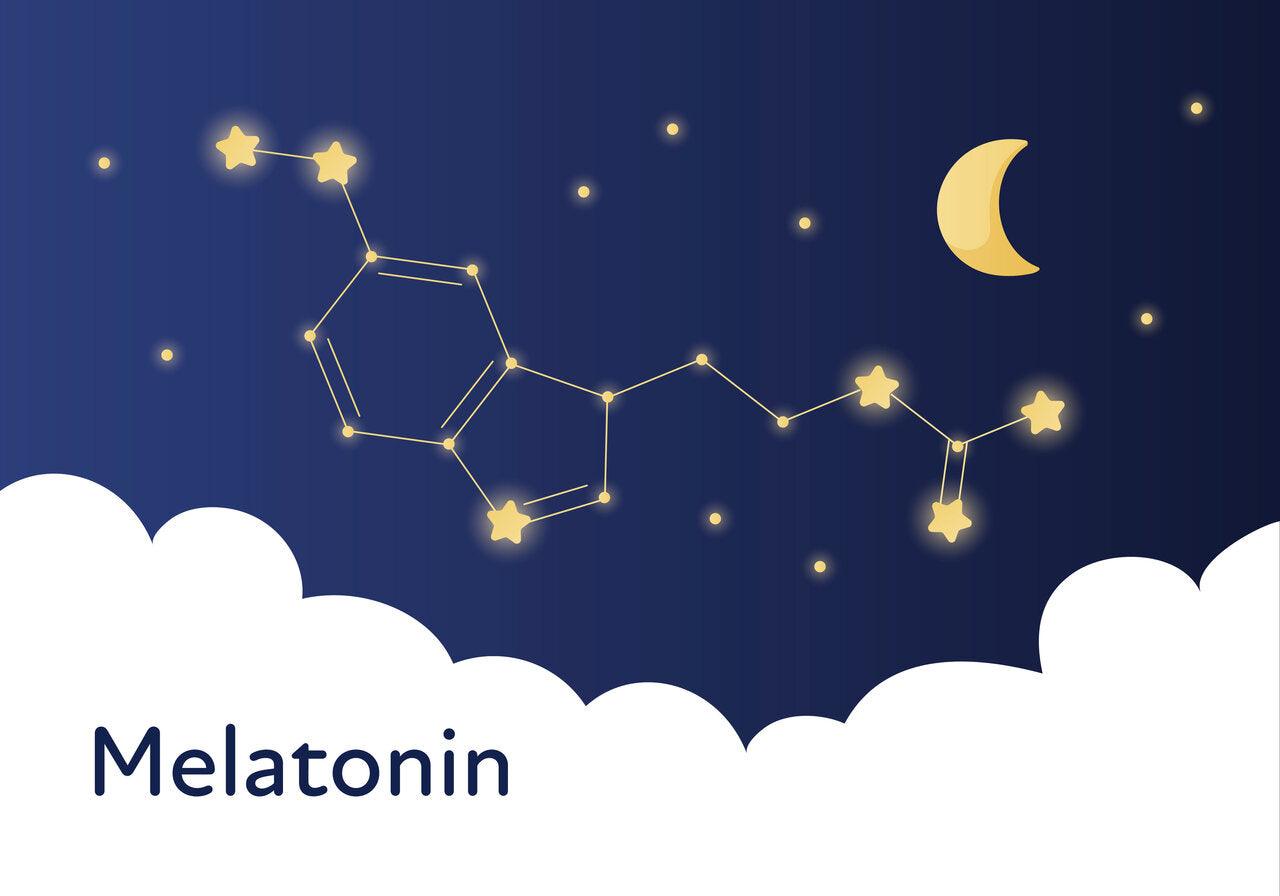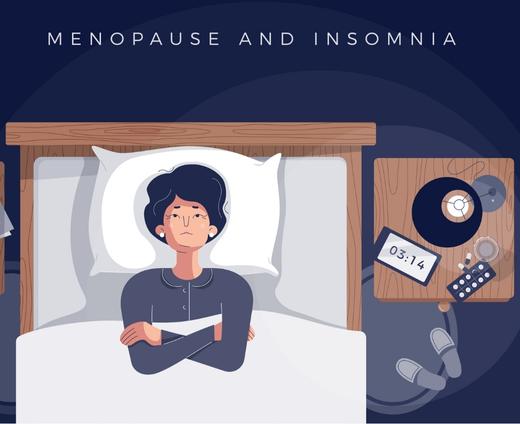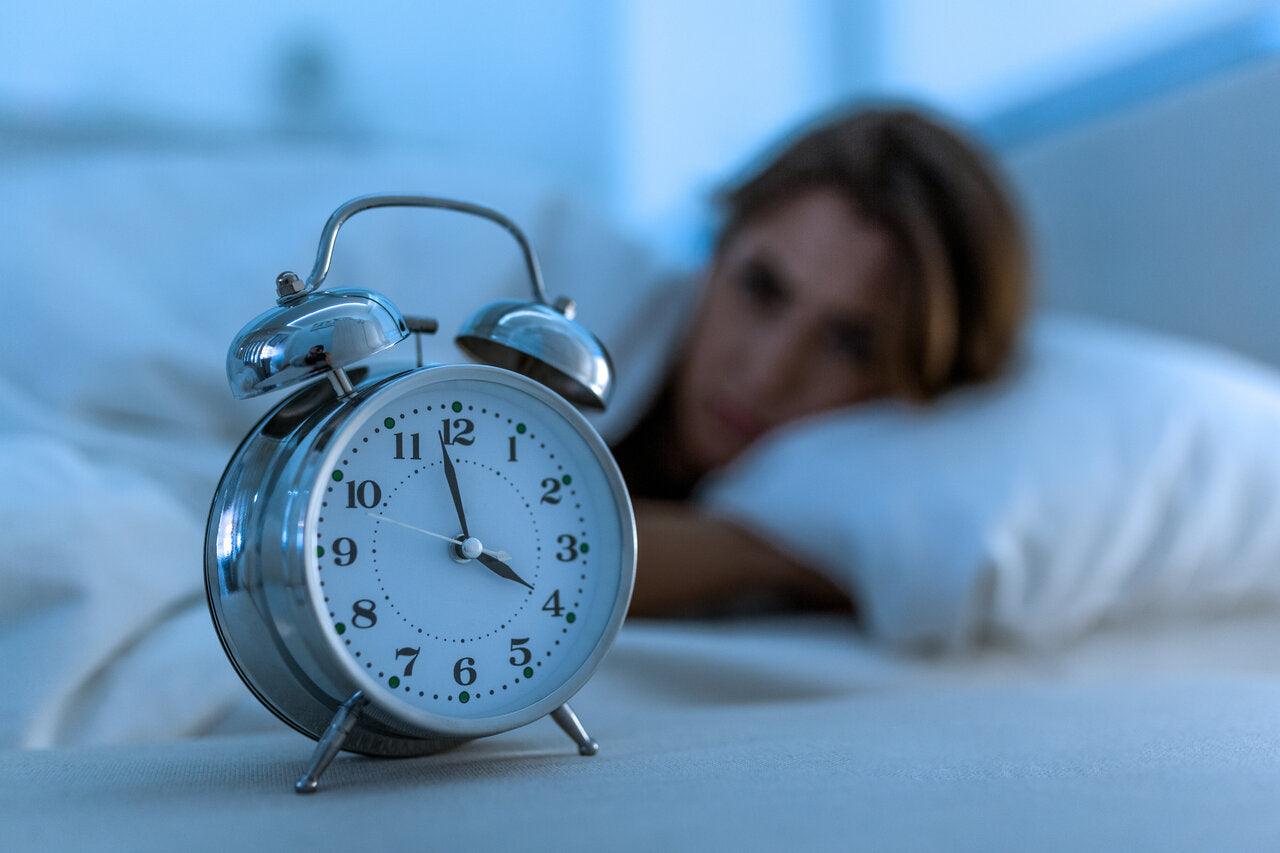Before you dive into another Netflix binge, consider this: you might be sabotaging your sleep schedule. That's right, those late-night TV marathons could be screwing with your body's production of melatonin, the hormone that regulates your sleep-wake cycle. So what is melatonin, exactly? Let’s break it down.
What is Melatonin?
When it comes to getting a good night's sleep, few things are as important as melatonin. This hormone is responsible for helping to regulate our sleep-wake cycles and it plays a key role in helping us to fall asleep and stay asleep.
So how does melatonin work? Well, it all has to do with your body's natural circadian rhythms. When it starts to get dark outside, your body begins to produce more melatonin in order to prepare for sleep. This increase in melatonin levels leads to feelings of drowsiness and eventually sleep. In the morning, levels of melatonin start to decline, helping us to wake up and start our day.
To learn more about circadian rhythms, head over to our fascinating blog on What Is The Circadian Rhythm? (And How It Impacts Your Sleep).
Melatonin can also boost your immune system, fight inflammation, and even protect your brain from damage.

Disrupting Melatonin: The Dark Side of Your Phone.
Ever wonder why you are more tired waking up on a winter morning when it is still dark outside, compared to a lovely sunny summer morning? – well it’s because in the summer the natural daylight of the sun lowers your melatonin levels to bring you out of your sleep state and cycle.
Sadly in the winter, the dark and gloomy mornings maintain your natural melatonin at a high level so you need to force yourself to get out of bed and wake up (perhaps with an added coffee or two!).
But it’s not just the seasons that have an effect on your melatonin production. One of the most common culprits for disruptive light is electronic screens. Whether it's a TV, laptop, or smartphone, the bright blue light emitted by screens can interfere with our body's production of melatonin.
Our bodies are designed to follow the natural cycle of light and dark and when that cycle is disrupted it can have a significant impact on our sleep patterns.

How to Keep Your Melatonin Levels in Check as You Age.
Everybody can produce melatonin, however, levels are known to reduce with age. When we say age, we mean it’s all downhill quite early on for melatonin. Although levels are at their peak between the ages of 1-3 years, they start to decline until they plateau in early adulthood.
Melatonin also decreases in those who suffer from dementia, type 2 diabetes, severe pain, cancer and some mood disorders. However, all is not lost. You can make the most of your melatonin by changing your lifestyle through food, habits and environment. Some ways to increase your melatonin levels naturally are as follows:
- Use softer lighting for the evening, such as low yellow lighting instead of bright white LED and spotlights.
- Turn off electronics at least 2 hours before you aim to sleep as blue light suppresses melatonin secretion.
- Keep a regular routine of sleep and wake times. To learn more about the importance of a sleep schedule, read our blog on What Is Causing Me Poor Sleep And How To Fix It?
Lack of sleep also causes the body to age faster as the cells do not have adequate time to renew when sleep is reduced. This is another good reason to get in the hours now before it’s too late and the damage has been done. Ageing is not just wrinkles, it includes your internal organs too!

The Truth About Synthetic Melatonin.
Before you reach for the melatonin supplement, remember that not all melatonin is created equal and we would suggest doing your research and speaking to your doctor first, as it’s NOT like taking an extra Vitamin C tablet for example. In the UK melatonin cannot be bought over the counter and needs to be prescribed by a doctor – there is a good reason for that.
Melatonin is an antioxidant, when taken as a supplement in mild insomnia cases such as jet lag can assist but if used incorrectly can cause more damage. If taken regularly, melatonin supplements can also have the opposite effect and actually make your insomnia worse.
As you desensitise, you need more to have an effect, then too much can cause headaches and nightmares. It’s a vicious circle and we advise to avoid this option and opt for a natural routine instead.
To assist in the natural production of melatonin, here are a few tips you can implement today safely and naturally:
- Eat more melatonin-rich foods such as turkey, chicken, tomatoes, pomegranate, asparagus, olives, broccoli, cucumber, pineapple and grapes.
- Foods containing Tryptophan such as bananas, potatoes, eggs, spirulina, cod, salmon, oats, quinoa, rice and chickpeas are effective because once it's in your body, tryptophan is converted into serotonin, which is then turned into melatonin.
- Switch off all electronics 1-2 hours before you go to bed.
- Relax with the scent of lavender, rosemary and sandalwood with The Night Spray.
- Use natural sleep aids such as The Night Drink and The Night Cookie that contain sleep-inducing ingredients to help increase your melatonin levels.

There's A Reason They Call Melatonin 'The Sleep Hormone'.
You might not think that losing a few hours of shut-eye each night is a big deal, but the truth is, it can have a major impact on your health and well-being. Melatonin is the foundation of all good sleeps so try some of these tips and sleep better tonight.



